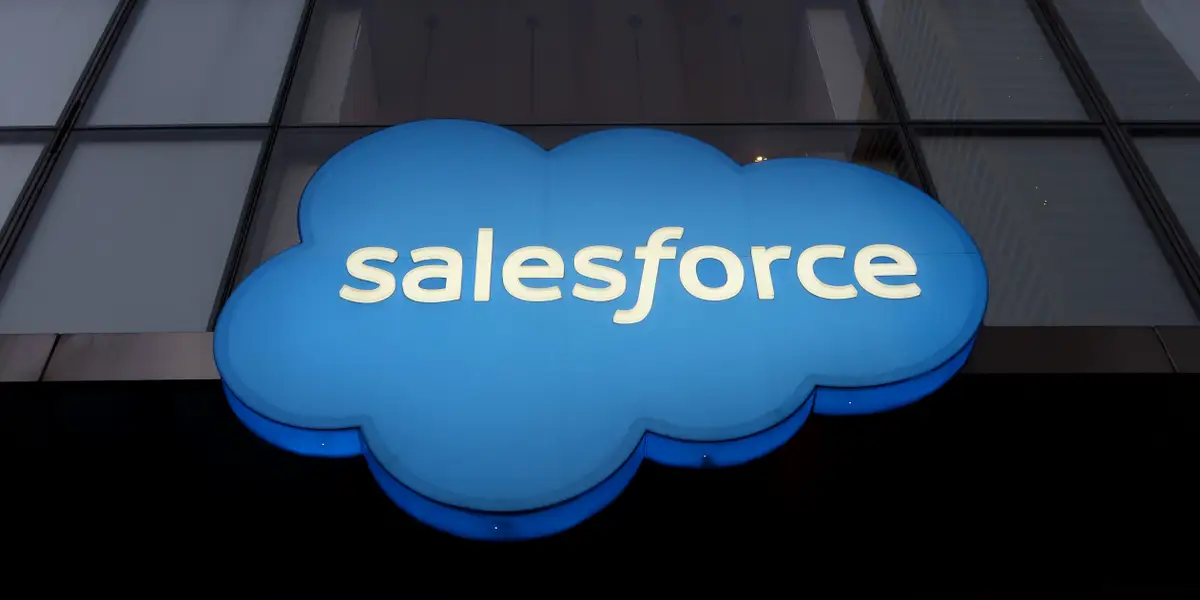Salesforce CRM is a powerful cloud-based platform designed to help businesses manage their customer relationships more efficiently. With tools for sales, marketing, service, and analytics, Salesforce has become the world’s most widely used CRM system. It enables organizations to track every customer interaction, automate workflows, and analyze performance metrics in real time. One of the biggest benefits of Salesforce CRM is its scalability—it suits businesses of all sizes, from startups to global enterprises. The platform offers customizable dashboards, third-party integrations, and mobile access, ensuring users stay connected and productive wherever they are. Moreover, it helps unify sales and customer service departments, improving collaboration and customer satisfaction. As companies grow, managing leads, deals, and customer issues becomes complex, but Salesforce CRM simplifies this by offering a centralized view of all customer data, leading to more informed decision-making and better overall performance.
Customer Data Centralization
At the core of Salesforce CRM lies its ability to centralize customer data from various touchpoints—emails, social media, calls, and web interactions—into a single, unified platform. This centralization ensures that every department has access to accurate, up-to-date information, enabling a more personalized and effective customer experience. Sales reps can view a customer’s full history, support teams can track service issues, and marketers can analyze past campaigns—all from one interface. This eliminates data silos, which are common in businesses using multiple systems. A centralized system like Salesforce CRM also reduces errors caused by duplicate or outdated records. It improves internal communication and empowers employees with the context needed to engage customers more effectively. In the middle of large-scale digital transformation, companies are adopting Salesforce CRM to ensure that customer information is accurate, secure, and easily accessible across teams, leading to more strategic and customer-centric business decisions.
Sales Automation and Forecasting
Salesforce CRM excels in automating repetitive sales tasks, helping sales teams focus more on building relationships and closing deals. It automates lead scoring, follow-up emails, task assignments, and pipeline updates, reducing manual effort and increasing productivity. One of the standout features of Salesforce CRM is its advanced forecasting capabilities. Sales managers can view real-time data on deal progress, team performance, and revenue projections. Forecasting tools help identify potential shortfalls early, enabling leaders to adjust strategies proactively. The system uses AI-powered insights through Salesforce Einstein to predict which leads are more likely to convert, giving sales reps a competitive edge. With accurate forecasting and automation in place, businesses can allocate resources more effectively and make data-driven decisions. These features not only streamline the sales process but also improve closing rates, making Salesforce CRM an indispensable asset for growing companies looking to maintain an agile, proactive sales approach.
Enhanced Customer Support Capabilities
Customer service is another area where Salesforce CRM makes a significant impact. With the Service Cloud module, businesses can manage and resolve customer inquiries across multiple channels including email, phone, social media, and live chat. Agents have a 360-degree view of the customer, including their interaction history, recent purchases, and prior support tickets. This context allows for faster and more personalized responses, which increases customer satisfaction and loyalty. Salesforce CRM also supports automation of ticket routing, knowledge base suggestions, and service-level agreement tracking. Managers can monitor support performance using customizable dashboards and reports, identifying trends and bottlenecks to improve service delivery. In addition, self-service portals and AI-driven chatbots help deflect common inquiries, freeing up human agents for more complex tasks. Businesses that prioritize exceptional service are turning to Salesforce CRM to create consistent, omnichannel customer experiences that reduce churn and enhance brand loyalty.
Marketing Integration and Campaign Management
Marketing teams benefit greatly from Salesforce CRM through its robust marketing automation and campaign management tools. Salesforce’s Marketing Cloud allows users to create personalized, data-driven campaigns that engage customers across email, mobile, web, and social channels. Marketers can segment audiences based on behavior, preferences, and demographics to deliver the right message at the right time. By integrating with the CRM system, all marketing activity is tied back to individual customer profiles, enabling precise tracking of campaign performance and ROI. This means marketing teams can see exactly which campaigns influenced a sale or generated new leads. Salesforce CRM also supports journey mapping, allowing businesses to design and visualize the entire customer experience from initial contact to post-sale engagement. This alignment between marketing and sales ensures that no opportunity is missed and every customer interaction is optimized, making it one of the most comprehensive CRM solutions available for modern marketers.
Workflow Automation and Process Efficiency

One of the core strengths of Salesforce CRM is its ability to automate complex business processes through custom workflows, approval processes, and triggers. Users can set up automation rules without writing code, thanks to Salesforce’s intuitive drag-and-drop tools like Process Builder and Flow. These automations streamline operations by ensuring tasks are completed on time and follow a consistent process. For example, a lead can automatically be assigned to the right sales rep based on geographic region or product interest, or a discount request can be routed to a manager for approval. By removing manual steps, companies reduce errors, improve compliance, and save time. Automating customer onboarding, contract approvals, and case escalations are just a few examples of what Salesforce CRM can handle. These capabilities significantly enhance operational efficiency, particularly in large or fast-growing businesses where managing volume manually becomes unsustainable.
Mobile Access and Real-Time Collaboration
Today’s workforce is increasingly mobile, and Salesforce CRM offers full functionality across devices through its Salesforce mobile app. Whether in the field, at a trade show, or working remotely, users can access real-time data, update records, and respond to leads from anywhere. The mobile experience mirrors the desktop version, ensuring consistency and ease of use. Sales reps can log calls, view meeting notes, and receive alerts on high-priority tasks, keeping them productive on the go. In addition, Salesforce’s collaboration tool, Chatter, allows teams to communicate, share documents, and tag colleagues directly within records. This promotes faster decision-making and knowledge sharing across departments. Mobile CRM access is not just a convenience—it’s a competitive necessity. As customer expectations for immediate responses increase, businesses equipped with mobile Salesforce CRM tools are better positioned to meet those demands and deliver a seamless customer experience, no matter where the interaction occurs.
Customization and Scalability
No two businesses operate the same way, and Salesforce CRM recognizes this with its deep customization options. Users can create custom fields, objects, workflows, and dashboards tailored to their unique business processes. The platform’s flexibility means it can evolve with a business as needs change—whether that’s expanding into new markets, launching new products, or restructuring teams. Developers can use Salesforce’s proprietary programming language, Apex, to build custom applications or leverage AppExchange, which offers thousands of pre-built apps for different functions and industries. This level of customization makes Salesforce CRM a preferred choice for both SMBs and large enterprises. As organizations grow, the CRM system scales seamlessly, handling increased data volumes and user activity without compromising performance. Among all CRM platforms, Salesforce CRM stands out for its ability to adapt to complex organizational structures and support long-term business evolution without requiring a complete system overhaul.
Security and Data Compliance
Security is a top priority for any company handling sensitive customer information, and Salesforce CRM is built with enterprise-grade security features. It includes role-based access control, data encryption, audit logs, and IP restrictions to ensure that only authorized personnel can access certain data. Salesforce is also compliant with major global regulations such as GDPR, HIPAA, and CCPA, making it suitable for companies operating in regulated industries like finance and healthcare. With regular third-party audits and an uptime commitment of 99.9%, Salesforce CRM delivers both reliability and peace of mind. In addition, the platform provides detailed user activity logs and customizable permissions, giving administrators full visibility and control over how data is accessed and used. This focus on security and compliance is one of the key reasons enterprises trust Salesforce CRM as a central hub for their customer relationship management needs, especially when data privacy concerns are at an all-time high.
Analytics and Business Intelligence
Salesforce CRM isn’t just a tool for managing relationships—it’s a powerful analytics engine that turns raw data into actionable insights. With built-in dashboards, custom reporting, and advanced analytics tools like Tableau and Salesforce Einstein, users can identify trends, measure performance, and uncover opportunities. Executives can track KPIs across teams, while managers can drill down into specific campaigns or sales territories to see what’s driving success and what needs improvement. Predictive analytics powered by artificial intelligence helps businesses forecast future performance and customer behavior. For example, Einstein Analytics can identify which deals are most likely to close or which customers are at risk of churning. Salesforce CRM empowers decision-makers with data-driven insights that fuel strategic planning, resource allocation, and market positioning. The ability to visualize data in real-time and share reports across departments enhances organizational alignment and ensures everyone is working toward common goals.
Conclusion
Salesforce CRM is far more than a customer database—it’s an integrated, intelligent platform that empowers businesses to connect with customers in meaningful ways, streamline operations, and make data-backed decisions. From sales and service to marketing and analytics, every feature is built to support growth, efficiency, and customer satisfaction. Its customization capabilities, mobile access, automation features, and strong security framework make it a top-tier choice for businesses of all sizes. By centralizing data, enabling collaboration, and offering predictive insights, Salesforce CRM helps companies stay ahead in competitive markets. Businesses adopting Salesforce CRM are not just investing in software—they are building a scalable ecosystem for long-term success and innovation.

